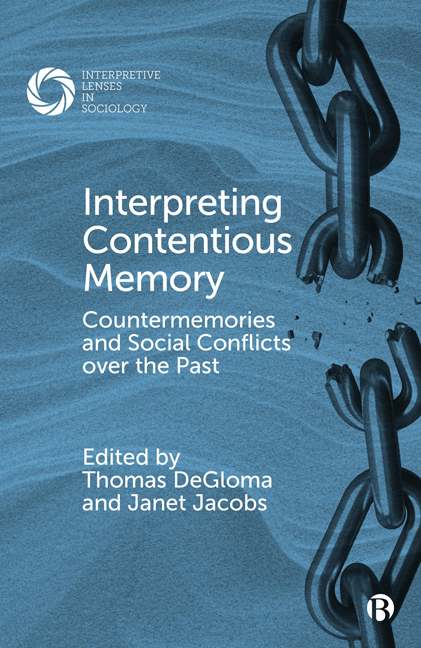Book contents
- Frontmatter
- Contents
- Series Editors’ Preface: Interpretive Lenses in Sociology – On the Multidimensional Foundations of Meaning in Social Life
- Notes on Contributors
- Acknowledgments
- 1 Introduction: Interpreting Contentious Memories and Conflicts over the Past
- PART I Interpreting Memories in the Social Dynamics of Contention
- PART II Racism, Exclusion, and Mnemonic Conflict
- PART III Genocide, Memory, and the Historicizing of Trauma
- Index
6 - Building a Case for Citizenship: Countermemory Work among Deported Veterans
Published online by Cambridge University Press: 20 January 2024
- Frontmatter
- Contents
- Series Editors’ Preface: Interpretive Lenses in Sociology – On the Multidimensional Foundations of Meaning in Social Life
- Notes on Contributors
- Acknowledgments
- 1 Introduction: Interpreting Contentious Memories and Conflicts over the Past
- PART I Interpreting Memories in the Social Dynamics of Contention
- PART II Racism, Exclusion, and Mnemonic Conflict
- PART III Genocide, Memory, and the Historicizing of Trauma
- Index
Summary
Tijuana, 2016. A middle-aged man with a buzz cut sits on a futon draped with crocheted blankets. Wearing a zipped up beige windbreaker, his bare knees hold up the stained card table. The man is bent over a paper intake form, his ballpoint pen tentatively poised mid-air, the fingers of the left hand carefully pressing the paper down. The form says “DEPORTED VETERANS” on top in large font. The window into this scene is the public Facebook page of the Deported Veterans Support House. Dominating the photograph is a large US flag hanging on the wall. In fact, there are at least five other US flags visible: a small flag attached to the card table, a flag in the background of a memorial flyer for a deceased deported veteran, a flag carried by a deported but still living veteran on a flyer for a Memorial Day action, a 13-fold flag on a metal bookshelf – and one of the crocheted blankets is a US flag. Also visible are other flyers with helmet imagery and words like “banished veterans.”
As he fills out the intake form with information about his military service and demographics, the man is enveloped in patriotic symbols of the United States that fill the modest space. If he becomes part of the deported veteran community, he will work with other deported veterans and their allies to re-create himself as a banished veteran, “honorably discharged, dishonorably deported.” He will reconstruct his own biography to foreground his military service, reconfiguring his past to open up a future of return. And he will contribute to the shared countermemory project with which deported veterans establish their claims of belonging in the United States.
In this chapter, I discuss how US military veterans deported to Mexico work together to co-construct autobiographical memories to build a shared case for US citizenship and national belonging through military service. The countermemory they work on surfaces the existence of immigrants in the US military and establishes the connection between the US military, prison, and immigration systems amidst a dominant collective memory of war and the US military that excludes the deportee.
- Type
- Chapter
- Information
- Interpreting Contentious MemoryCountermemories and Social Conflicts over the Past, pp. 113 - 133Publisher: Bristol University PressPrint publication year: 2023

